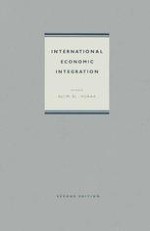1988 | OriginalPaper | Buchkapitel
The West African Economic Community
verfasst von : Peter Robson
Erschienen in: International Economic Integration
Verlag: Palgrave Macmillan UK
Enthalten in: Professional Book Archive
Aktivieren Sie unsere intelligente Suche, um passende Fachinhalte oder Patente zu finden.
Wählen Sie Textabschnitte aus um mit Künstlicher Intelligenz passenden Patente zu finden. powered by
Markieren Sie Textabschnitte, um KI-gestützt weitere passende Inhalte zu finden. powered by
The West African Economic Community (Communauté Economique de l’Afrique de l’Quest, or CEAO), not to be confused with the Economic Community of West African States (ECOWAS), represents the third attempt of the majority of the states1 created out of the former federation of Afrique Orientale Française (AOF) to maintain and improve their previous economic links. The two earlier attempts, resulting in the establishment of UDAO in 1959 and of UDEAO in 1966, both failed. The reasons for their failure are numerous and complex and some are now mainly of historical interest. Technical, administrative, political and economic factors all played a part, including a natural desire on the part of newly independent countries to utilise their principal instrument of fiscal policy, namely the tariff, in the interests of development. But an overriding reason for the failure of the two previous initiatives was the inherent defectiveness of an orthodox customs union as an instrument of regional co-operation in the conditions of Africa in the 1960s. Some much needed improvements were made in UDEAO, notably in its acceptance of the necessity of intraregional tariff protection in a bloc which lacked a regional policy, and in the establishment of a permanent machinery of administration, previously lacking. In its almost exclusive concern with trade liberalisation, however, UDEAO remained an expression of an approach that Tinbergen (1965) had designated as ‘negative integration’ — see Chapter 1.
